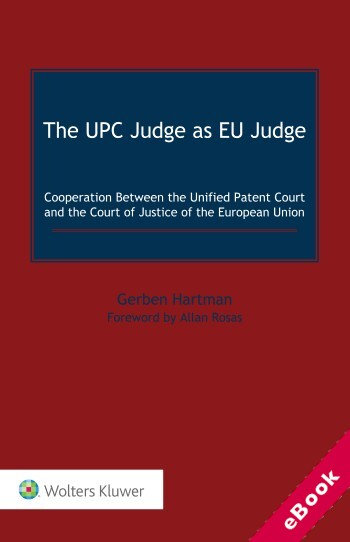
The device(s) you use to access the eBook content must be authorized with an Adobe ID before you download the product otherwise it will fail to register correctly.
For further information see https://www.wildy.com/ebook-formats
Once the order is confirmed an automated e-mail will be sent to you to allow you to download the eBook.
All eBooks are supplied firm sale and cannot be returned. If you believe there is a fault with your eBook then contact us on ebooks@wildy.com and we will help in resolving the issue. This does not affect your statutory rights.
The UPC Judge as EU Judge is a book pursuing the question of how the Unified Patent Court (UPC) may cooperate, ‘as any national court’, with the Court of Justice of the European Union (CJEU) in accordance with the EU constitutional framework. After a decade of legal challenges, setbacks and delays, the (UPC) came into existence on 1 June 2023 as a court common to – at present – eighteen participating EU Member States. The UPC is uniquely responsible for its decisions on the application and interpretation of EU law in actions relating to patents and supplementary protection certificates within its exclusive competence, in particular concerning European patents with unitary effect.
What’s in this book:
In response to this complex question, the author provides an in-depth analysis of the following issues:
Each of these issues is substantiated and clarified through detailed case studies and empirical research on the parties’ written submissions, hearing reports, opinions, decisions and related writings of judges, lawyers, and scholars.
How this will help you:
This book provides a forward-looking and thorough examination of the basic conditions for cooperation between the UPC and the CJEU, as well as of the mechanisms for ensuring compliance with those conditions and remedying infringement thereof. It seeks to help foster sincere cooperation to ensure effective legal protection of individuals’ rights conferred by EU law in the patent field. The book will prove beneficial to judges, legal representatives, and parties in patent-related proceedings. In addition, as a study of the EU judicial cooperation system in the framework of EU, international and national law, its relevance beyond the UPC context will appeal to a broader audience of international law and EU law practitioners or scholars.